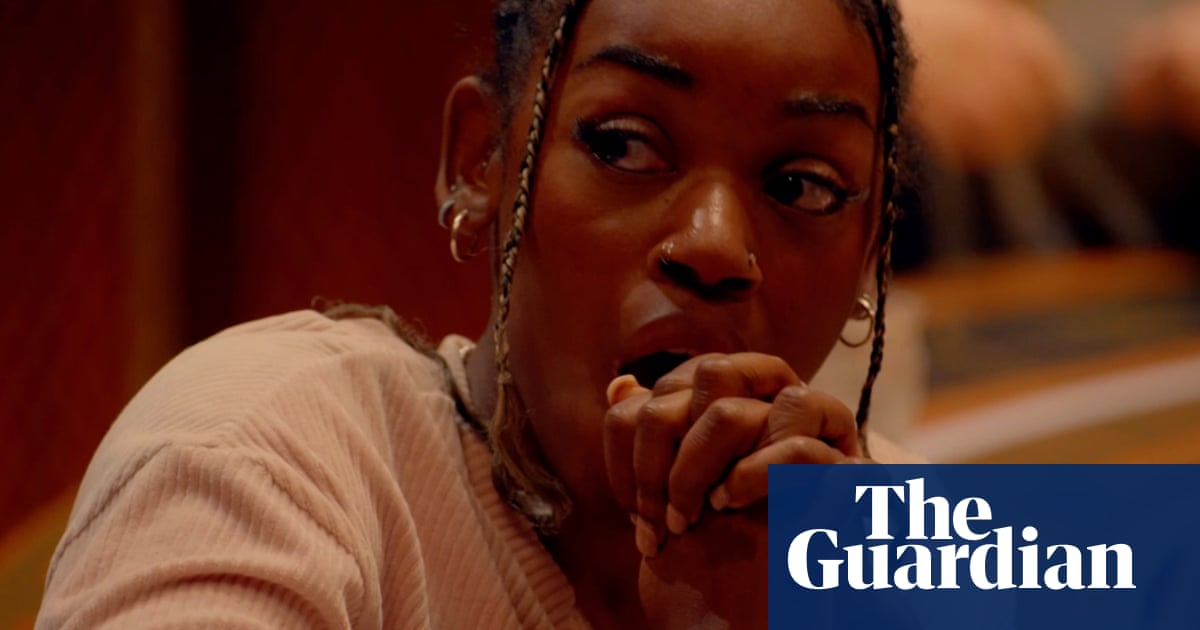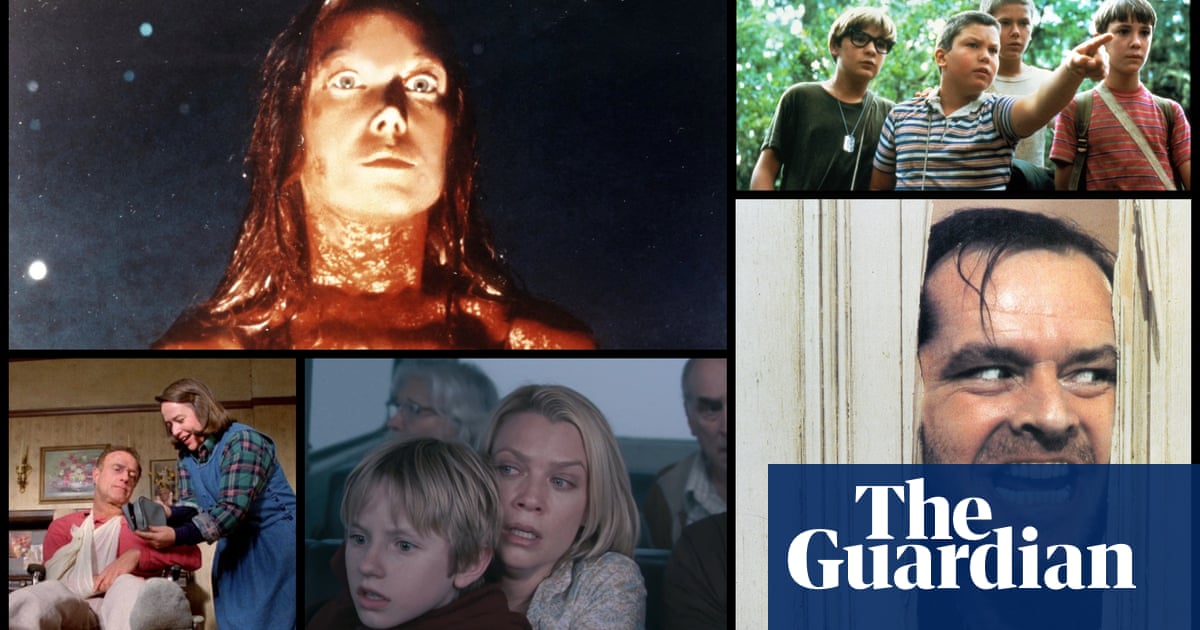
Louis Walsh – The X Factor
Some TV judges earn their place through force of personality, or by sheer diagnostic precision. Others, though, just have an ineffable spirit; a mystifying quality that somehow elevates everything around them. An X Factor, if you will. That’s right, I’m talking about Louis Walsh. Sue me.
True, during his time on the show, Walsh contributed little in the way of tangible good. He would often fall into an unbreakable cycle of the same glib platitudes. His indecision repeatedly crashed episodes into deadlock. He once tried to convince the nation that a young performer stood at the forefront of modern music by forcing him to sing the 1982 hit Zoom by Fat Larry’s Band. Yet look at his achievements. JLS were a Louis Walsh group. So were Girls Aloud, and Jedward. But more than this, his presence on the show always stopped it from capsizing. The X Factor was never a good television programme by any stretch of the imagination, but episodes that didn’t feature Louis Walsh were flat-out unwatchable. The man is a wizard.
Stuart Heritage
Michelle Visage – RuPaul’s Drag Race
When Michelle Visage is not convinced, you are sure to know about it. New Jersey’s leading drag authority doesn’t so much have resting-bitch face as a permanent “doesn’t suffer fools” aura, with a touch of “I’d rather get a root canal every day than see another queen in a skin-coloured bodysuit with glued-on rhinestones”.
But, really, the contestants – and there are many, many contestants now, as Drag Race wraps its diamante-studded tentacles around the planet – rarely have a bigger cheerleader. Championing drag in all its forms, never condoning bullying or bad behaviour, and pushing the competitors to their limits, Visage is always there to support them – as long as they don’t wear green. Having come through New York’s drag ball scene, she brings all-important authenticity to a contest that is now international and inarguably mainstream.
Crucially, she can always take a joke: when US contestant Peppermint proclaimed “Not since Destiny’s Child has there been a Michelle so famous for riding somebody else’s coattails”, Visage was in stitches. Hannah J Davies
Gregg Wallace – MasterChef
It’s impossible not to be impressed by Gregg Wallace. This isn’t simply a man who has spent the past 16 years judging other people’s cooking – amateur and professional – off the back of zero cheffing experience. He has parlayed it into several unrelated areas: the economy (The Money Programme), military strategy (Time Commanders), the entire world (this year alone, he has hosted two different eponymous travel programmes). In 2015, Charlie Brooker’s Weekly Wipe observed Wallace’s ubiquity not merely as a host or a guest, but as a constant reference point on other shows. Somehow, in the years since, he only seems to have become more … everywhere.
The sheer miraculousness of Wallace’s career is not what makes him my favourite TV judge – although it does make me feel a lot more optimistic about life’s possibilities. That said, I like how underqualified he is. Having an avowedly non-expert host (albeit one with a palate more danced upon than most) stops MasterChef from descending into stuffy, navel-gazing territory. Yes, Wallace is loud, irritating and generally inane, but instead of tediously (and desperately) amping up the seriousness of his competition, he brings a certain levity to proceedings – an attitude of: “Cooking, eh?!” – that puts contestants at ease.
That isn’t to say Wallace is dismissive – quite the opposite. While long-running TV shows are great for broadcasters, usually getting slicker and cheaper as they go along, they tend to drain the enthusiasm. Luckily, Wallace has enthusiasm to burn. Nobody, I’ll wager, in the history of time has reacted more enthusiastically to more plates of food than Gregg Wallace.
Rachel Aroesti
Doug Marcaida – Forged in Fire
Hammer time! If you have never seen Forged in Fire, it’s the addictive US reality show where each week four amateur blacksmiths (usually male, often burly) compete to forge wicked-looking knives and blades from scratch within a tight time limit. With the macho vibe of sizzling metal being brutalised on anvils you might expect the four judges to be bellicose blowhards eager to cut the sweaty hopefuls down to size. Instead, the rotating Forged in Fire panel is comprised of self-possessed craftsmen whose no-nonsense assessments are always tempered with encouragement.
Among this wise fraternity of surrogate father figures, I have a particular fondness for Doug Marcaida, the Jedi-like edged weapons specialist who evaluates the sharpness of finished blades. This usually involves donning safety goggles and adopting a warrior’s scowl before he pirouettes round customised targets – such as sandbags, billowing sailcloth or bushels of bamboo – in a flurry of Zorro-like slashes. Watching a bloke behead a ballistic dummy that oozes fake blood would usually be pretty gruesome, but the way Marcaida’s game face morphs into a puckish smile before he gives his verdict makes it all rather charming. Graeme Virtue
Keith Brymer Jones – The Great Pottery Throw Down
Every time Keith Brymer Jones, master potter, cradles a delicate ceramic in his enormous hands, it is like watching a child discover a gift for the first time. There is wonder in his watery eyes as his 6ft frame stoops over a selection of hairline cracks and bright glazes. As he turns to the maker, he begins to speak and his voice breaks. “It’s amazing mate,” he says. Every time he says that, he cries.
Jones has been a judge on The Great Pottery Throw Down since it first aired in 2015. A clay-based take on the Bake Off formula, the show is untroubling, ambient television, but Jones makes it highly watchable. Where so many TV judges perform – Gordon Ramsay’s disdain, RuPaul’s sass – Jones is earnest and radiates wholesome passion.
Watching this large man quiver like jelly when faced with amateur handiwork should give us all hope that there is something we, too, could be moved by. Perhaps for me it’s watching grown men cry on telly. Ammar Kalia
Katy Perry – American Idol
Fading stars aligned when the once mammoth American Idol hired Katy Perry as a judge for its 2018 reboot – still a successful pop star, but not the world-beater she had been. While her salary (allegedly $25m per season) initially made news, headlines continued into her tenure, like the moment she gave a contestant his first kiss, or the time she loved a performance so much she pulled off her wig.
Four seasons in, Perry has turned out to be a natural. Her cartoonish, Betty Boop styling makes for a lighthearted presence alongside Lionel Richie and country singer Luke Bryan. Despite her candy-coloured visuals, she doesn’t sugarcoat her advice to contestants. Her USP is sometimes blunt but mostly relevant mentoring for the contestants, with the odd call to arms, such as when she told one competitor to “make the stage your bitch”, or another that she was “all frosting”, as part of an extended metaphor about cake.
Television judging is not usually a promotional tool for pop stars, but Perry has turned the gig into something arguably more valuable: an opportunity to zhoosh up her brand and show her weird side. Henry Wong
Motsi Mabuse – Strictly Come Dancing
“He’s really obsessed with me, I have to call security sometimes.” Motsi Mabuse recently overshadowed a studio of A-listers on The Graham Norton Show, using her wit and vivacity to cock a snook at Craig Revel Horwood. A couple of years earlier, on the same chatshow, she breezily schooled Tom Hanks on the scoring system. A dancing queen was born.
Aside from top-tier star quality, Motsi – now on her third turn as a Strictly judge – holds the ultimate judge’s trifecta: she’s firm, fair and friendly, with a cracking sense of humour. She also knows what she’s talking about; having joined Germany’s version of Strictly as a dancer in 2007, she then became a judge on the show for eight years.
And, while Motsi’s star is rising, you just know she would be a hoot in a crappy club with a sticky dancefloor. Hollie Richardson
The Inquisitor
Red Dwarf
Without stakes, what exactly is the point of a judge? Think about it: Simon Cowell has just told someone their version of Wind Beneath My Wings made him want to feed knitting needles into his ears. Or Craig Revel Horwood has compared a celebrity’s samba to someone dancing on a bed of nails. What’s the worst that happens? There might be crying. Perhaps a meme is born. But in the end, the judged skulk off home, and are soon picking wallaby sphincter out of their teeth in the jungle or presenting a segment about bus fares on The One Show. Twitter might have a meltdown for an hour, then life trundles on. It’s boring. In order to matter, judgments need consequences. And what bigger consequence is there than being cast into oblivion?
Which brings us to The Inquisitor, Red Dwarf’s rogue, skull-helmeted android, who marauds across space and time offering one very grand – and final – judgment. Having lived until the end of the universe, the Inquisitor came to the conclusion that the only true meaning of life is to lead a worthwhile existence. If he pays someone a visit and decides they have squandered their gift, he uses his time-laser gauntlet to excise them out of existence altogether, their spot in this mortal coil given to another sperm-and-egg cocktail. Like all judgments, it’s subjective, and more than a bit mean. Unlike others, if you come up short, even your cat won’t remember you. Take note, Paul Hollywood. Luke Holland












